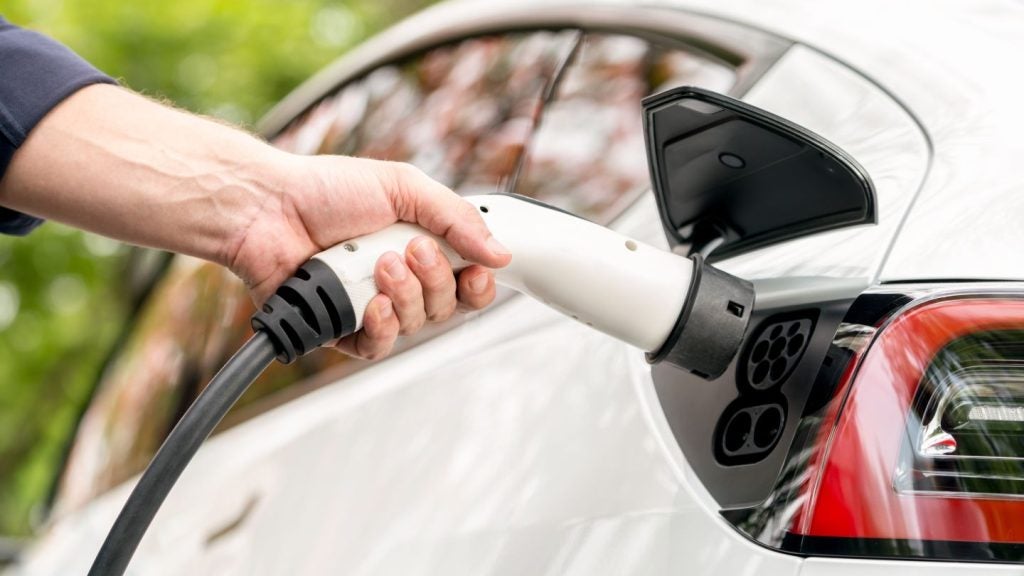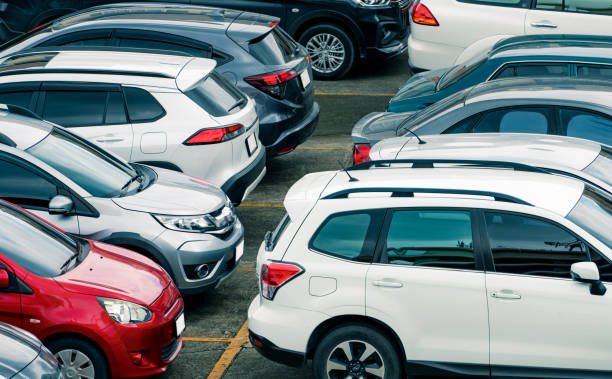
Two years since the UK went into its first lockdown, we look at how Covid has changed the future of motor finance, and how prepared the sector is for the next crisis. Chris Farnell reports
If you had asked anyone in the motor finance industry at the beginning of 2020 what the biggest issue in the sector was going to be that year, they would have probably pointed you to the upcoming changes to the FCA rule book.
That guess would turn out to be very, very wrong, but as the industry comes out the other side of the Covid crisis, those regulatory changes are still on the horizon and will have a significant effect on the industry.
What has changed is the industry itself.
“Covid-19 created a focus and sense of purpose which saw the industry become much more agile,” says Richard Jones, Managing Director, Motor Finance & Leasing, Lloyds Banking Group. “From a Black Horse perspective, we not only successfully delivered these at the start of 2021 but coped with all of the demands of our customers throughout the Covid-19, while developing new digital processes for the benefit of dealers and customers.”
“If you take legislation to start with, in 2021 the FCA brought in their new regulations, which fundamentally changed the relationship between a finance company and its introducer,” says peter Cottle, Practice Leader for the Automotive Sector at GrowCap Ltd. “The introducer can no longer have an impact on the rate being charged to a customer. So there’s been a regulation to say the only entity that can actually alter the interest is the funder itself.”
How well do you really know your competitors?
Access the most comprehensive Company Profiles on the market, powered by GlobalData. Save hours of research. Gain competitive edge.

Thank you!
Your download email will arrive shortly
Not ready to buy yet? Download a free sample
We are confident about the unique quality of our Company Profiles. However, we want you to make the most beneficial decision for your business, so we offer a free sample that you can download by submitting the below form
By GlobalDataOne of the things the FCA required was greater transparency and consistency in the consumer offering. Most finance companies have reacted to that by providing a fixed rate to their dealers, but it has also had an effect on finance companies’ attitude to risk.
“What also grew in a little bit of volume was ‘Rate for Risk’ where finance companies decide to be transparent but that the rate will be commensurate to the customers’ credit rating,” Cottle explains. “Choosing a rate based on creditworthiness is fair providing it’s a consistent offering. The vast majority operated with one fixed rate, but that’s now being challenged.”
The great energy switch
The FCA is not the only big regulatory driver in the automotive sector, however. The clock is ticking on the industry to achieve net-zero, a massive change that will have implications for the finance sector in particular.
“This is much more than just a switch to a different type of powertrain, it’s a catalyst towards different ways drivers will pay for car usage, operate their cars and we will see new connected vehicles services being offered,” says Jones. “The line between car company and technology company is completely blurred, and that impacts car finance and retailing too. Vehicles are becoming more expensive and we will see more policy interventions to encourage customer switching to electric.”
Black Horse has reacted to this by setting a strategy to play a leading role in the transition to net-zero, interacting with customers and dealers through their channel of choice.
“EVs open new opportunities on how finance solutions can support other options such as charging and other needs so I expect more bundled solutions, more flexibility and different types of finance contracts coming to the fore,” Jones tells us.
While these new options are exciting, what is essential is that these options are robust enough to replace the current status quo, with customers not always making their decisions based on what’s most environmentally ethical.
“There is a need to make sure funding of electric vehicles becomes normal and not a what-if,” Cottle insists. “There’s no reason for an electric vehicle to be treated any differently. The main difference is residual values, but conversely, with government petrol and diesel requirements, consumers are now considering if they really want their next car to be diesel or petrol. I don’t think personally it’s an environmental decision, it’s if it will be a cheaper way to meet motoring needs.”
Acceleration and change
It is perhaps a counter-intuitive question, but how much has the Covid-19 pandemic changed things? The big impacts, greater digitalisation, more online retail, a move to work-from-home and flexitime, were all on the cards at the start of 2020.
“It’s brought things forward by five years because there was always going to be a move to agile systems for dealing remotely with customers,” Cottle observes. “The younger generation is keener to do things remotely.”
For Cottle, the real impact of Covid is more subtle.
“I think the one thing that probably wouldn’t have happened is not funders or dealers, it’s people. People who have had the ability to work from home would not have had that ability to assess whether it’s good for them personally from a work-life balance,” he explains. “That wouldn’t have happened without Covid.”
Covid has also shown how customer trends can change rapidly. A trend towards public transportation has reversed dramatically thanks to the pandemic.
“The preference for private transport shifted massively in a very short space of time and at a macro level it runs counter to broader decarbonisation aims, I don’t know how quickly that will reverse,” Jones points out.
The next big thing
There are still trends that can be watched and planned for, however. For instance, the mix of available products is changing to suit customer demand.
“At the moment what you’ve got in the showroom and online is a Hire Purchase Product and PCP, and most will advertise their cars in a duel way,” Cottle says. “What’s going to grow, and it won’t be immediate, is the subscription model. What I think has to take place is that it needs to sit alongside the traditional PCP and HP offering.”
As for who is selling the cars, Cottle expects more dealer consolidation, with larger groups buying up smaller groups to give them scale. But that doesn’t mean there are no more left-field possibilities out there.
“There has been growth among disruptors. The traditional finance company dealer relationship is there and strong but the likes of Cinch, and Cazoo coming into the marketplace to eat some of the dealer’s lunch,” Cottle says.
While many of these operations started out as online-only “Click and Collect” businesses, some are now building a physical presence.
“You can argue whether they will be successful, but they’ve pushed the traditional model to renew itself,” says Cottle. “The dealer world has reacted to that, Covid has accelerated it but they’ve got their act together a lot better.”
That ability to adjust, more than anything, is the big lesson the industry has drawn from the pandemic. But in many ways it has not changed at all, the industry is still about managing risk.
“The sector needs to be able to adjust quickly to circumstances, to offer choice in product and in how customers engage with us,” says Jones. “Above all customers need transparency and through that, we demonstrate value for money. As technology change accelerates along with higher prices, the appetite and ability to manage residual value risk become even more critical.”
The pandemic was completely unprecedented, at a time where it already felt like unprecedented events had been piling up, from the Trump presidency to Brexit, to the growing pressures of climate change. One could be forgiven for wondering what the next big shock will be.
“If it was Covid level we’ve got a blueprint now,” Cottle says. “We’re much better ready to cope with that and much more relaxed if it happens. It’s not the unknown factor anymore. What could happen apart from another Covid? We’ve got Ukraine and God forbid what that might bring. Normal disaster recovery is a building catching fire and moving somewhere else- nobody was prepared for Covid. It’s the unknown. What’s the thing we should expect we don’t know about?”
Motor finance and the two-year journey back from Covid
The state of UK leasing two years since Covid







